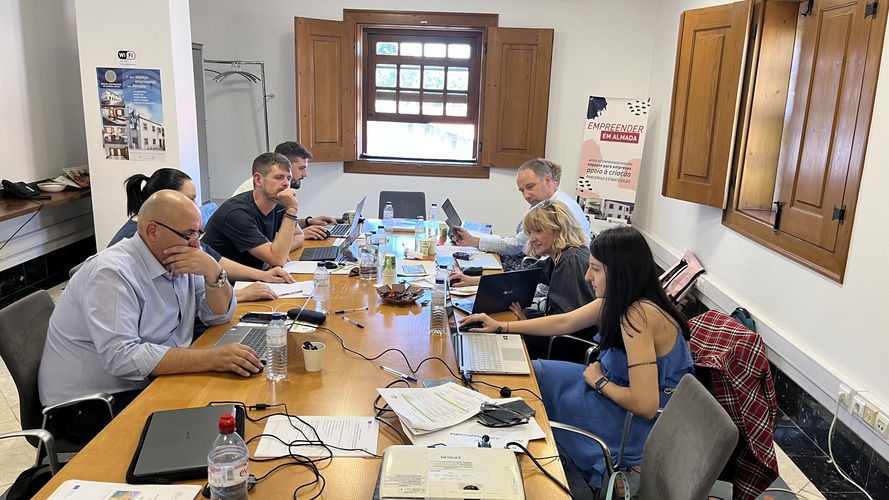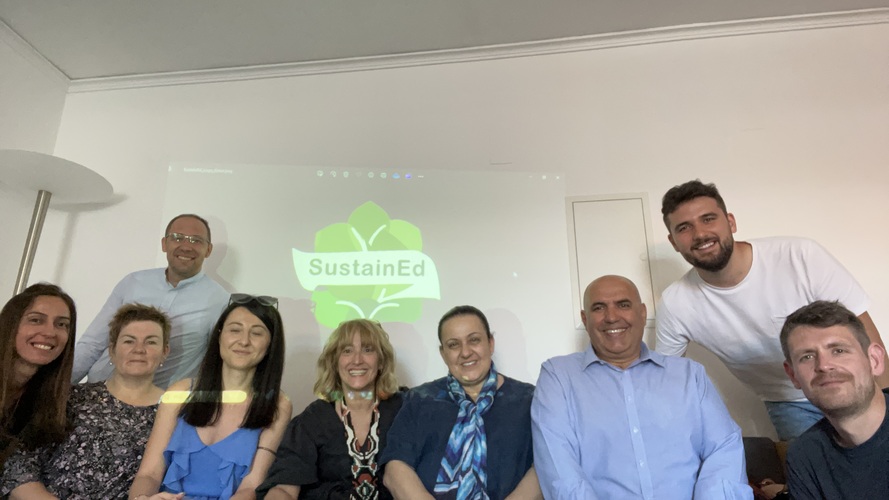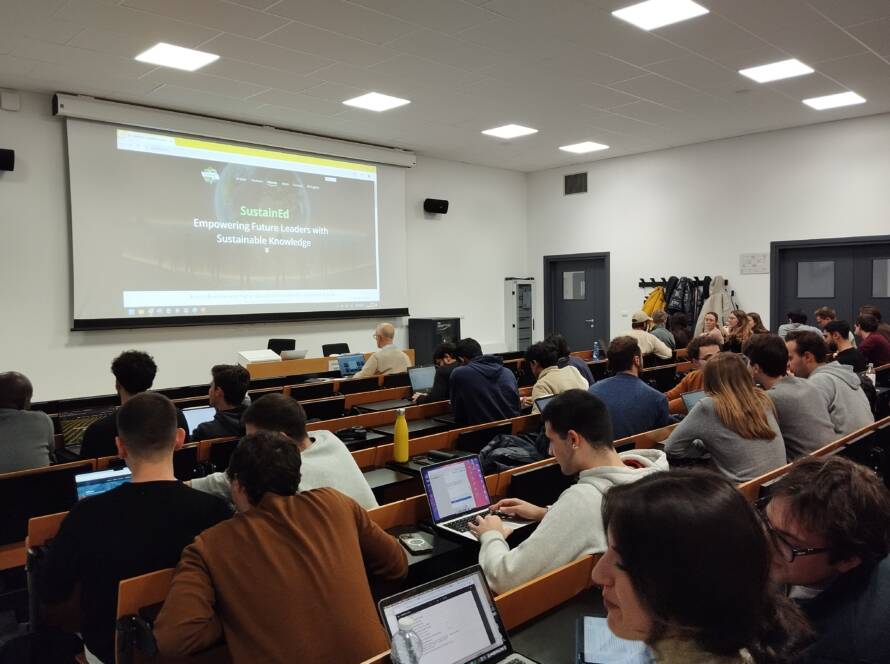On the 28th and 29th of May, the SustainEd project held its first physical meeting in the picturesque city of Almada, Portugal. This pivotal gathering marked the beginning of a series of strategic meetings aimed at ensuring the project’s successful implementation. The event was conducted in a hybrid format, accommodating both in-person and virtual participants, reflecting the inclusive and flexible approach of the SustainEd initiative.
The meeting commenced with a warm welcome from the host, StoryTellMe, and the project coordinator, MFU. Their introductory remarks set a collaborative tone for the sessions that followed, emphasizing the importance of collective effort and synergy in achieving the project’s goals.
The coordinator then presented the main points of the agenda, outlining the critical areas of discussion and planning necessary for this stage of the project.
Key Discussion Points
Project Management (WP1)
Effective project management is vital for the success of SustainEd. The meeting included a thorough discussion of the financial and administrative rules governing the project. By establishing clear guidelines and expectations, the team aims to maintain efficient and transparent management practices throughout the project’s duration. The team also reviewed the quality management plan and the project’s indicators, ensuring that all activities align with the established benchmarks.
Development of SustainEdX: The Sustainable Learning Experience Toolkit for HE Students (WP2)
A significant portion of the meeting focused on Work Package 2 (WP2), which involves the development of SustainEdX. The team reviewed the status and progress of this WP activities, which are essential for laying the groundwork for this innovative toolkit.
Dissemination, Exploitation, and Outreach (WP4)
The final key discussion point was centered around Work Package 4 (WP4), which deals with dissemination, exploitation, and outreach. The team discussed the dissemination strategy, including plans for social media postings, newsletters, and reporting of dissemination and exploitation (D&E) activities. This comprehensive approach aims to maximize the project’s visibility and impact within the higher education community and beyond.




